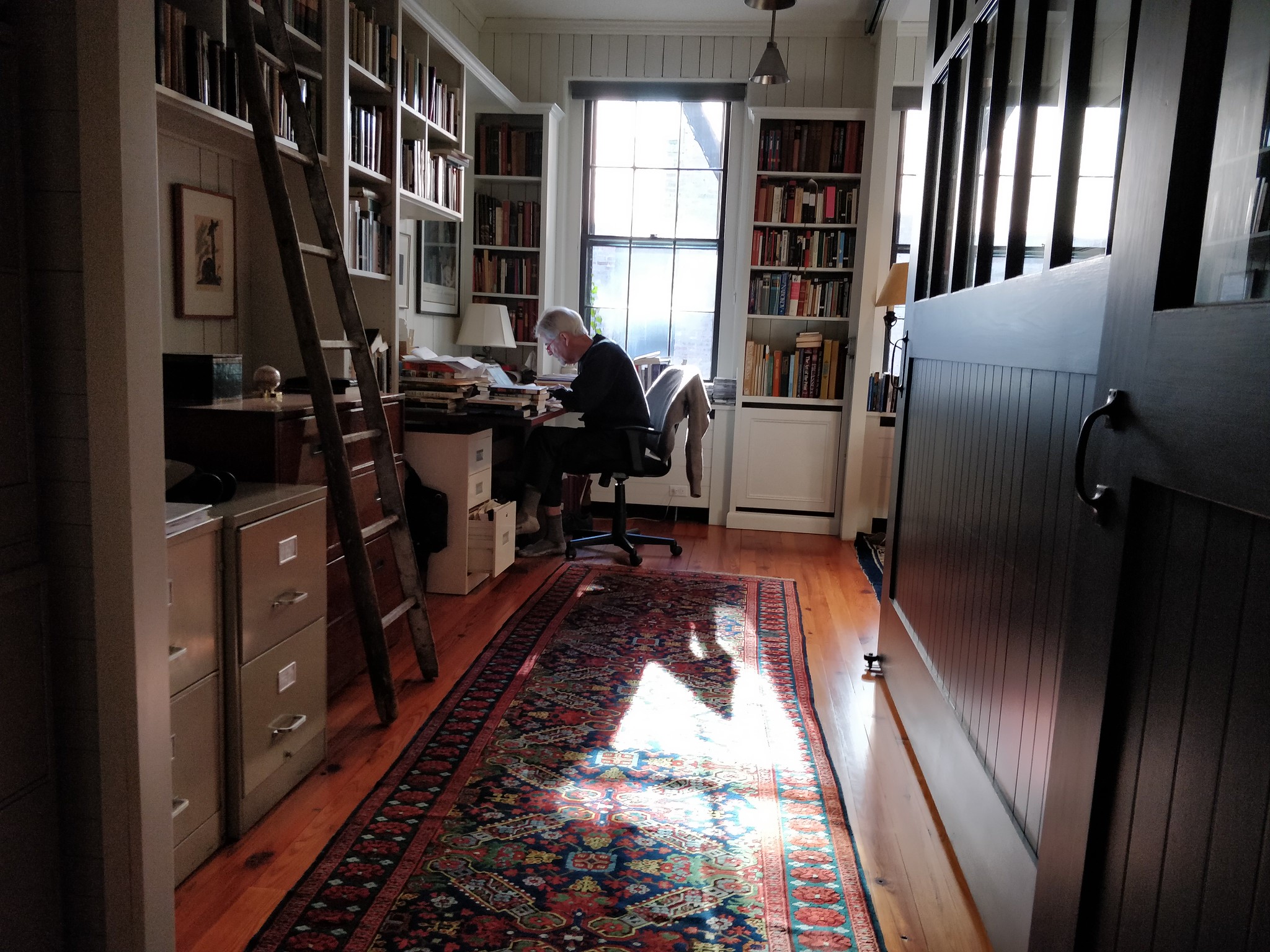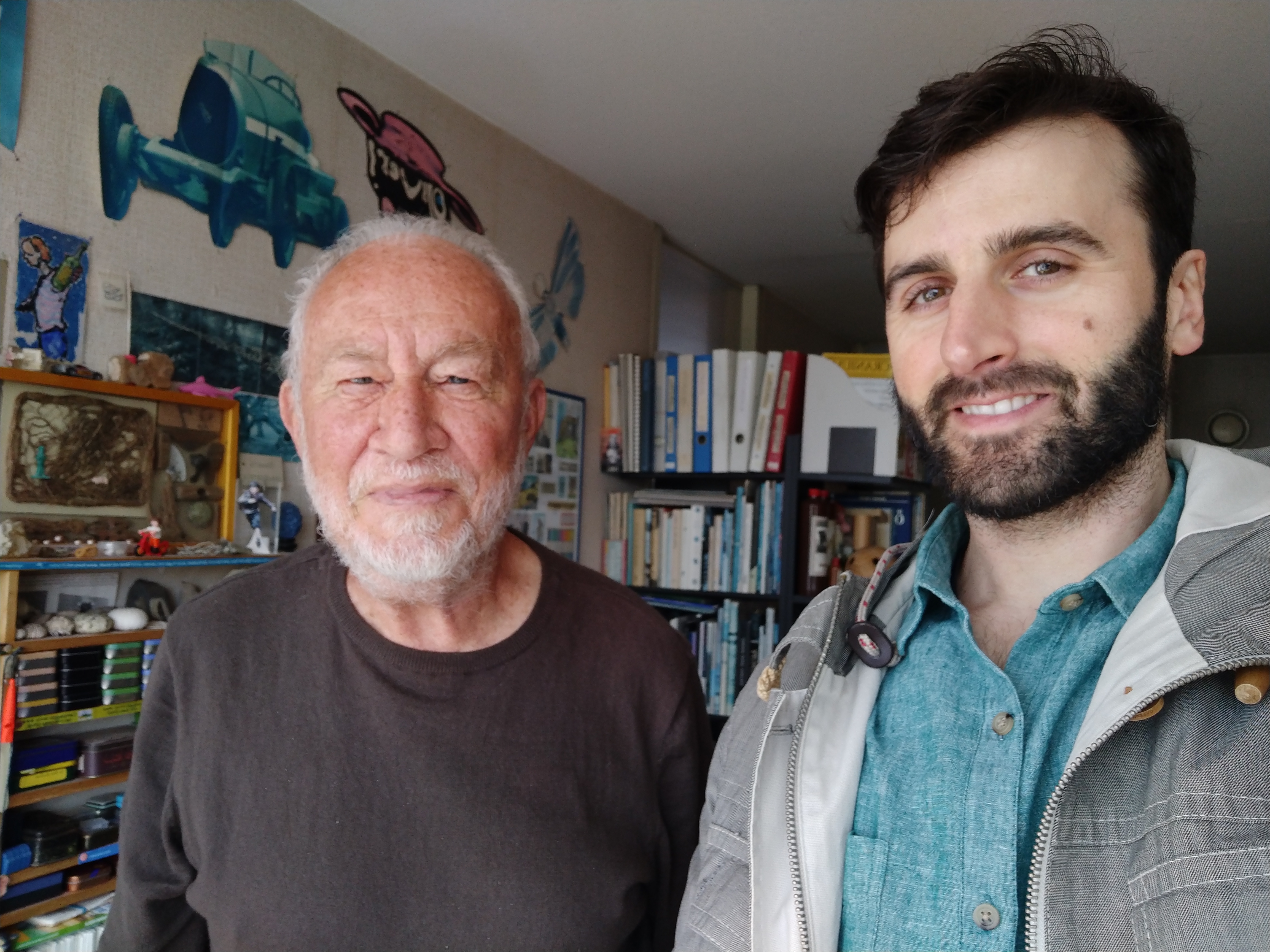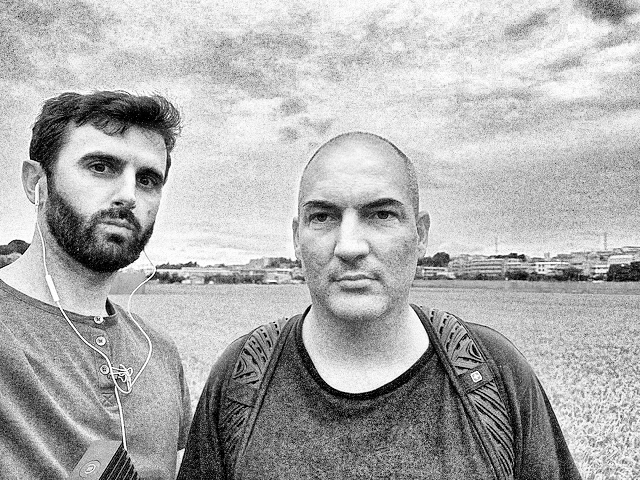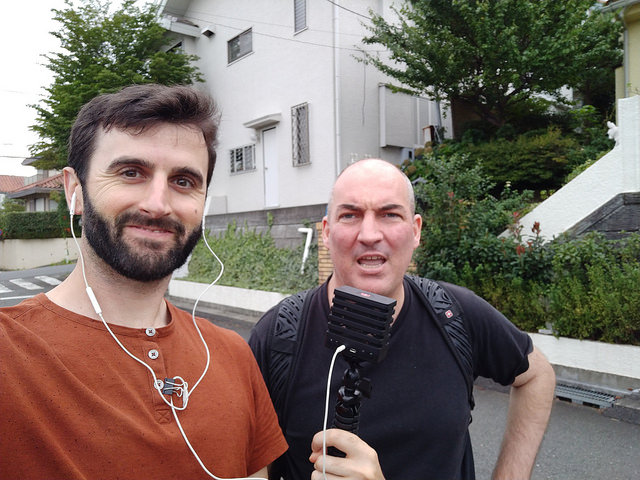Somehow the end of a year (and a decade this time) doesn’t feel right if I don’t find myself at the dinner table in Boston sitting across from Christopher Lydon. The voice of the world’s first podcast, he’s been my north star ever since I started this thing long before itunes had podcasts or NPR knew what to do with the internet. As luck- or perhaps fate– would have it, Chris and I have become close friends over the years and the annual “where are we, what happened, where are we going” podcast conversation are among my most favorite rituals. (right after oatmeal, working on an episode of ROS with Mary and the team, and a historical walk around a neighborhood of Boston).
This year we can’t help but talk about the socio-policial state of the world, as well as the environmental crisis we continue to march towards. Then there’s music, books, conversations that have been important to us which may shed some light on why all this is happening and what there is to appreciate or condemn when all is said and done. Lastly, as good friends surely will, we take time to appreciate one another, as we both arrive at landmark decades when it comes to age and wisdom.
Listen in and stay for the whole ride for what is an honest and heartfelt conversation… to end one year and welcome in another.
Tag Archives: UK
Outbursts, Setting Things on Fire and other Non-Japanese Behavior
Matthew Dons: A Walk Around His Tokyo
Today on the podcast, we take a long walk past the houses and trains, the fields and shrines, while looking at how things work here compared to anywhere else. There is learning but there is also a lot of laughing, mostly my own. Listen and enjoy.
Reminder also, Matthew is fighting to live longer, in a relentless battle against cancer; you can help his family afford this struggle by going to http://matthewdons.org and join the almost 900 people that have already donated.
Latin American Soldiers, Unite
Most of you know that I’m a big fan of the Euronews Nocomment video podcast. The combination of pure video with the original sounds without commentary changes the experience of watching things happen in the world.
This morning I watched and rewatched as Ecuadorian soldiers walked through the tropical forrest in formation. Heavily armed and pointing guns everywhere, in preparation for whatever enemy they are told they may have to face some day soon. Obviously the present enemy they perceive is Colombia, just across the border.
As I watch these soldiers do this, and cut to some other video of both presidents of Ecuador and Venezuela exchanging hostile words with the president of Colombia, I have a vision. That these soldiers in Ecuador would suddenly stop marching, put down their machine guns, turn to the camera and say.. “You know, Colombians are our family, our friends, and our neighbors… we’re not going to shoot at them just because the president says we should.”
It will likely be written off as a naive vision by all those who believe whole heartedly in obeying orders and never asking questions. By now more then ever, why not ask just what the hell these governments are trying to do? Why is one army invading parts of one country and then the other countries threatening to bomb in retaliation? Why do people who know each other, who share so much of the past and present in common, choose to support this kind of logic?
One thing that we’re missing in the world today, from Afghanistan to the Congo to Colombia and on and on… is for people to stop following without questioning. To stop obeying when the orders are to destroy fellow humans, to commit mass murder in response to mass murder.
Statehood Doesn’t Pay Bills
Nationalism has long been the cause of alot of pain and broken dreams in the history of the world. Yet nationalism is the force that brings about so many changes in so many places, even in this day and age.
I was working in Portugal several years ago when East Timor formerly declared it’s independence from Indonesia. Needless to say it was a big deal in Lisbon, at some level, as the nation watched a new country set out on the quest for freedom, prosperity… insert lofty goal. And of course, as I watched the ceremony in Dili, I can’t deny a feeling, based on all that I know from world history and the inequality that is the world economy, that East Timor would never really achieve much of a quality of life. For all the beauty and nobility of independence, you could spin the globe, crunch the numbers, and know that the new nation’s odds of a prosperous survival were slim to none.
Now we watch Kosovo. I know, I know, different details, different history, some different problems. But the facts still spell out the same feelings. Independence and freedom from whatever oppression, past or present, that certainly sounds good. No wonder lots of good people out there support the declaration. Yet what chance does it’s people have in this global economy and the political chess game that leaves a majority of the new nation as a bunch of expendable pawns; useful for flag waving news footage, but not worth a serious investment or some serious problem solving strategies. Powerful forces in the world of business and politics might have been salivating at the chance to use the cause and the region for their own goals, but now they can salivate even more as disorganization and internal struggles make it easy to profit.
Now you hear the whispers in different parts of the world get louder; Turkish Cyprus, Abkasia, Chechnya, Ingushetia, Palestine, Western Sahara, Aceh… places where the calls for independence grow louder now. And who would dare speak against many of those cases, where people have suffered and hoped for independence for so long.
While I don’t speak against most of these calls, I will add a question to the equation. How will they live? Will there be a way to seriously live without the threat of famine, violence, or some other terrible factor. Do they have some way to stand on their own two feet in a global economy that specializes in picking apart new nations without the luxury of lots of money or some magic resource?
Independence sounds lovely. But when calculating and dreaming of the kind of life people should have, I wish we would factor in what happens once you’ve got that independence. That’s the part that could really help make a better future for all people.






